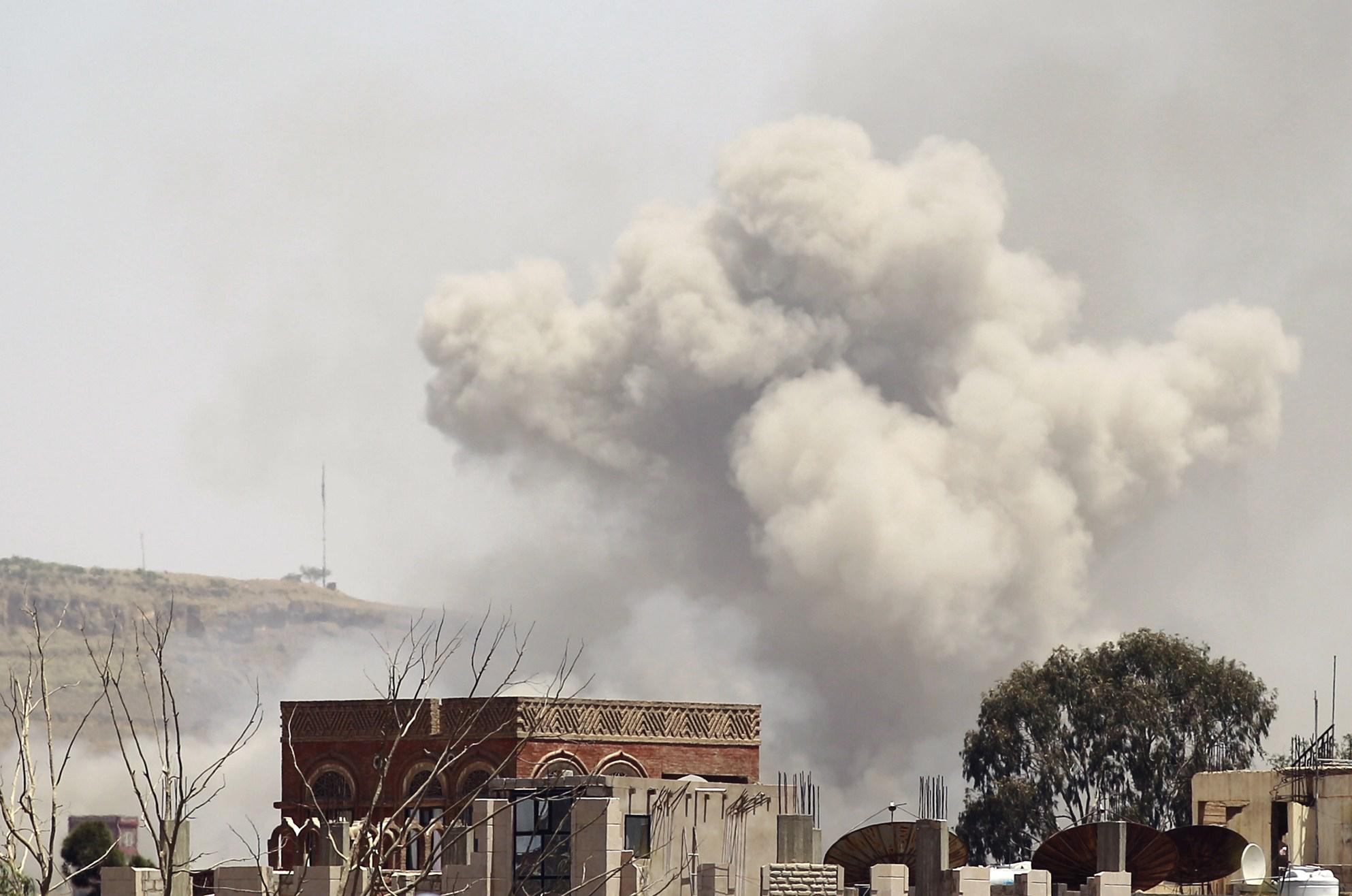The U.S. was already involved in one conflict in the Middle East—the fights against ISIS, al-Qaida, and the Assad regime in Syria and Iraq—in which it’s actively conducting or backing campaigns against multiple actors who are also fighting against each other. Now, the Obama administration seems to be getting pulled into a just as intractable situation in Yemen.
The U.S. has reluctantly been supporting the Saudi bombing campaign there, “vetting military targets and searching vessels for Yemen-bound Iranian arms” according to the Wall Street Journal. But there has been concern that the Houthi takeover of that country and the Saudi airstrikes are providing just the sort of chaotic, sectarian environment in which al-Qaida thrives. These fears were realized on Thursday when al-Qaida seized control of an airport, seaport, and oil terminal in Southern Yemen.
In a press briefing, Secretary of Defense Ashton Carter was asked whether the air campaign might be helping al-Qaida gain ground. He conceded that the group has taken advantage of the “opportunity in the environment created by the turmoil in Yemen.”
The U.S. has, for years, been conducting a covert war—mostly with drones—against al-Qaida’s Yemeni affiliate, considered among the most dangerous (they recently took credit for the Charlie Hebdo attacks). The drone campaign was conducted with the tacit support of former President Ali Abdullah Saleh, then the enthusiastic support of Abd Rabbu Mansur Hadi, who replaced him after the country’s 2011 uprising. As recently as September, President Obama was citing Yemen as a promising model for light footprint counterterrorism operations.
At the beginning of this year, Hadi was forced out of power by the Houthis, a Shiite insurgent group from the country’s north, and is now in exile in Saudi Arabia. The Houthis official slogan may be “God is great, death to America, death to Israel, damn the Jews, victory for Islam,” but they, like the U.S., are fighting against al-Qaida and other Sunni militant groups. A rough analogy can be made to the Iranian-backed Shiite militias battling ISIS along with the U.S. in Iraq.
The Houthis are believed to be receiving support from Iran, though the degree to which they’re under Tehran’s direct control is disputed. Saudi Arabia views them as a dangerous Iranian proxy and last month led a Gulf coalition campaign of airstrikes against the Houthis in an attempt to drive them from power and reinstall Hadi’s government.
In the meantime, even without a cooperative government, the U.S. is continuing its own campaign of drone strikes against al-Qaida leaders—a campaign which is a major cause of Sunni resentment and may itself have contributed to the country’s’ instability. There are also wider regional implications to Yemen’s instability. Iraq’s prime minister has criticized the Saudi intervention, suggesting that events in Yemen could have in impact on the already delicate coalition battling ISIS.
Of course, the Obama administration would love to have Hadi’s cooperative government back, but U.S. officials say they are “skeptical the airstrikes will reverse the Houthi gains.”
So why is the administration supporting a campaign that it believes in the short-term is benefiting al-Qaida and in the long term is unlikely to accomplish its goals?
Partly, perhaps, because there aren’t an abundance of better options on the table. The administration may also feel that this is a moment where it can’t afford to risk losing Saudi support: The kingdom has been surprisingly encouraging of the recently announced nuclear deal with Iran.
But in Yemen, the situation is getting more complex and crowded by the day. In addition to the Saudi-led coalition, al-Qaida, the Houthis, and the remnants of Hadi’s state, the conflict also includes military units supporting ousted president Saleh, a movement of separatists who want South Yemen to secede, and ISIS. Yemen’s civilians are being squeezed in the middle with the risk of a humanitarian catastrophe becoming acute.
As Carter put it on Thursday in a massive understatement, “It’s obvious that it’s easier to do our counter-terrorism operations against AQAP when there’s a settled government in Yemen. There is not that now.”
